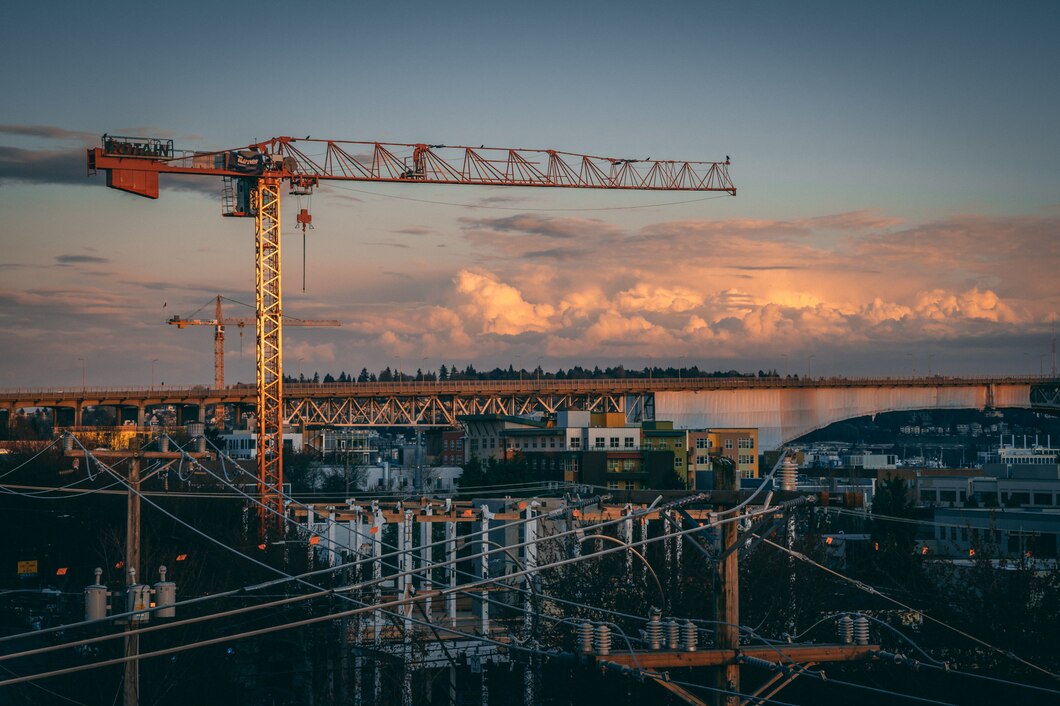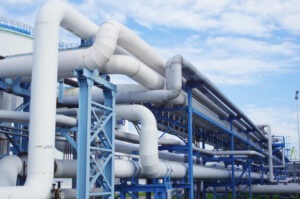When tackling industrial construction projects, the role of a general contractor is essential. Their expertise ensures that the project adheres to timelines, stays within budget, and meets quality standards. From start to finish, these professionals coordinate every aspect of the build, making sure that everything runs smoothly. Without a skilled general contractor, the complexities of managing multiple trades and suppliers can become overwhelming.
In the realm of industrial construction, the stakes are high. These projects often involve large-scale facilities that must comply with strict regulations and safety standards. General contracting becomes indispensable, guiding the project through its various phases, from the initial planning stages to the final touches. The general contractor serves as the project’s backbone, ensuring that each task is completed efficiently and to the highest quality.
By understanding the basics of general contracting, one can appreciate the intricacies involved in these large-scale projects. Whether it’s a new factory, a wastewater treatment plant, or an infrastructure development, knowing the critical role that general contracting plays helps us see the value it brings to an industrial site. This article will delve into what general contracting entails and why it is key to the success of industrial projects in 2024.
What is General Contracting and Why It’s Essential for Industrial Sites
General contracting refers to the management of a construction project from conception to completion. In industrial projects, this involves overseeing the construction of large-scale facilities like factories, warehouses, and treatment plants. The general contractor is responsible for coordinating all aspects of the build, including hiring subcontractors, securing materials, and ensuring the project meets all regulatory standards.
The necessity of general contracting in industrial projects cannot be overstated. These projects often involve complex systems and strict safety requirements. A general contractor ensures that every detail is managed carefully to avoid costly errors and delays. They act as a single point of contact, making it easier for project owners to communicate their needs and receive updates. Without efficient general contracting, the risks of mismanagement, budget overruns, and project delays increase significantly, making the role indispensable.
Steps Involved in General Contracting for Industrial Projects
- Planning and Design: The first step involves creating a detailed plan and design for the project. This stage includes site evaluation, drafting architectural plans, and obtaining necessary permits. The general contractor collaborates with architects and engineers to ensure the plans meet all regulatory and functional requirements.
- Procurement of Materials: Once the design is approved, the general contractor arranges the procurement of materials needed for the construction. This involves negotiating with suppliers to obtain high-quality materials at the best possible prices. Proper procurement ensures the project stays within budget and on schedule.
- Hiring Subcontractors: Specialized tasks such as electrical work, plumbing, and roofing are usually handled by subcontractors. The general contractor is responsible for hiring and supervising these professionals to ensure their work aligns with the project’s standards and timelines.
- Construction Phase: During this phase, the general contractor oversees all on-site activities. They coordinate the work of subcontractors, manage schedules, and ensure that the construction adheres to the design specifications. Regular site inspections are conducted to monitor progress and address any issues promptly.
- Quality Control and Safety: The general contractor is responsible for maintaining high standards of quality and safety throughout the construction process. This includes regular inspections and adherence to safety regulations. Quality control ensures that the finished project meets all required specifications and is built to last.
- Project Completion and Handover: Once the construction is complete, the general contractor conducts a final inspection to ensure everything is in order. They then hand over the project to the owner, providing all necessary documentation and ensuring that the site is ready for use.
By following these steps, general contracting ensures that industrial projects are completed efficiently, safely, and to the highest standards. This structured approach minimizes risks and ensures that even the most complex industrial projects are successfully brought to fruition.
Key Roles and Responsibilities of a General Contractor
The role of a general contractor in industrial projects involves several key responsibilities that ensure the project’s success. Understanding these roles helps appreciate the expertise and coordination required for such projects.
- Project Management: The general contractor oversees the entire project, coordinating all activities from planning to completion. This includes scheduling, budgeting, and ensuring all work meets specified standards.
- Hiring and Supervising Subcontractors: Tasked with selecting the right subcontractors for specialized jobs, the general contractor ensures that these professionals are qualified and reliable. They supervise their work, making sure it aligns with the project’s requirements.
- Procurement and Logistics: Beyond just hiring subcontractors, the general contractor also manages the procurement of materials and equipment. This involves sourcing quality materials at competitive prices and ensuring timely delivery to the site.
- Quality and Safety Management: Ensuring that the project adheres to all safety regulations and maintains high-quality standards is crucial. Regular site inspections and adherence to safety protocols fall under the general contractor’s responsibilities.
- Communication: Acting as a liaison between the project owner and the various teams involved, the general contractor ensures clear and consistent communication. This helps address any issues quickly and keeps the project on track.
Common Challenges and Solutions in Industrial General Contracting
Industrial general contracting comes with its set of challenges. However, understanding these common issues and their solutions can help in better management of projects.
- Budget Overruns: One frequent challenge is keeping the project within budget. Material costs can fluctuate, and unforeseen issues can arise. The solution is detailed upfront planning and creating a contingency budget to cover unexpected expenses.
- Scheduling Delays: Industrial projects often face delays due to various factors like weather conditions or supply chain disruptions. Effective project scheduling and having backup plans in place can mitigate these delays.
- Regulatory Compliance: Ensuring that the project meets all local, provincial, and federal regulations can be complex. Staying updated with regulations and involving compliance experts early on helps navigate these challenges.
- Safety Issues: Industrial sites are prone to safety risks. Implementing strict safety protocols, regular training, and frequent safety audits can significantly reduce these risks.
- Communication Gaps: Miscommunication between teams can lead to errors and delays. Establishing clear communication channels and regular update meetings ensures everyone is on the same page.
By addressing these common challenges with effective strategies, general contractors can ensure the smooth execution of industrial projects.
Conclusion
General contracting plays a pivotal role in the successful completion of industrial projects. From managing budgets and schedules to ensuring regulatory compliance and safety, the responsibilities of a general contractor are vast and varied. Their expertise in coordinating each phase of the project ensures that everything runs smoothly, eliminating the potential for costly errors and delays.
Understanding the complexities and challenges involved in industrial general contracting highlights the importance of having a skilled team in charge. They not only bring everything together but also provide solutions to common issues, paving the way for efficient and effective project completion.
For any industrial construction needs, partnering with a reliable general contractor is crucial. At Industra Construction Corp., we are committed to delivering excellence in every project we undertake. Contact us today to discuss how we can help bring your industrial construction project to life.

















